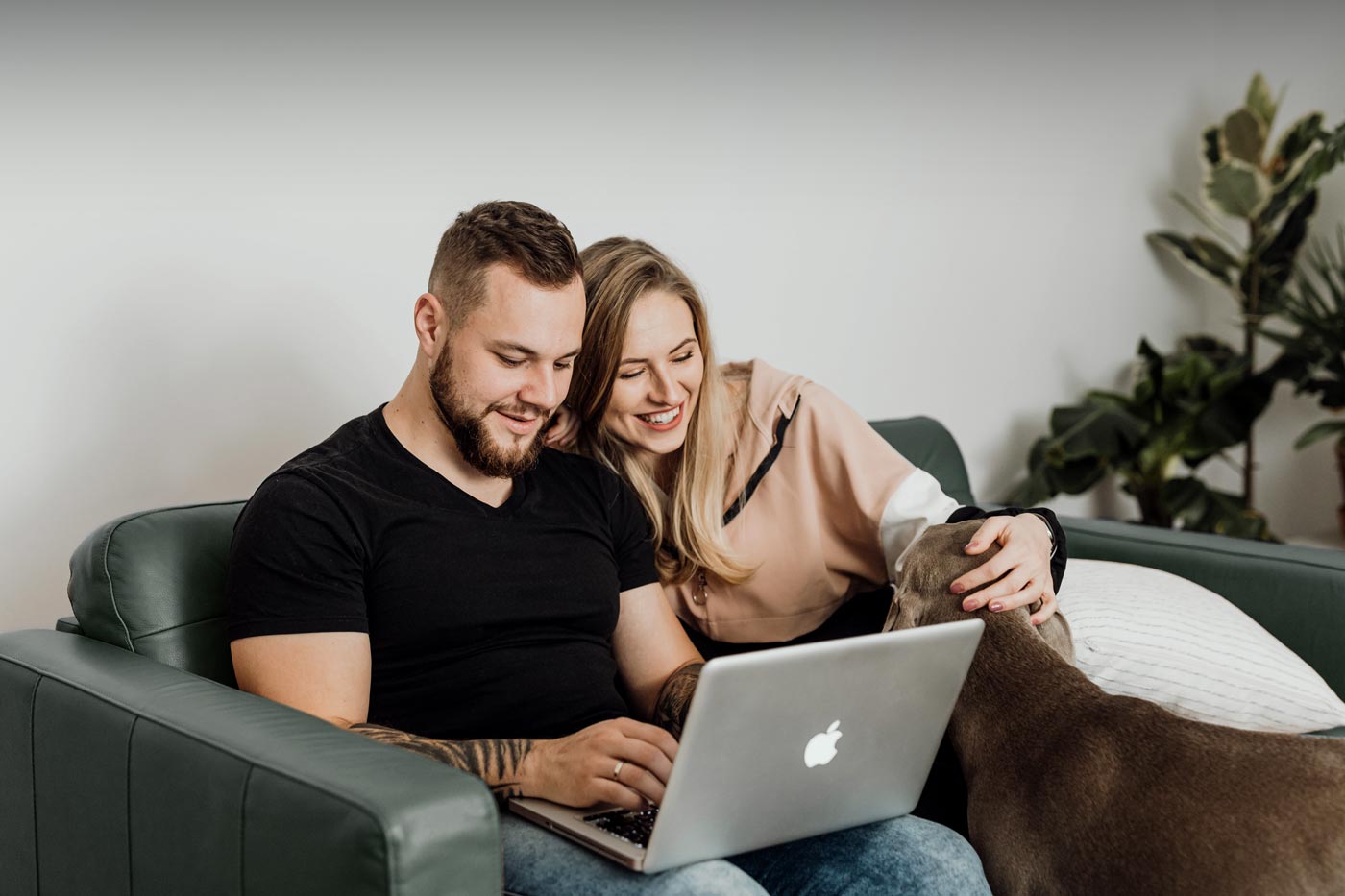- March 11, 2019
Share This
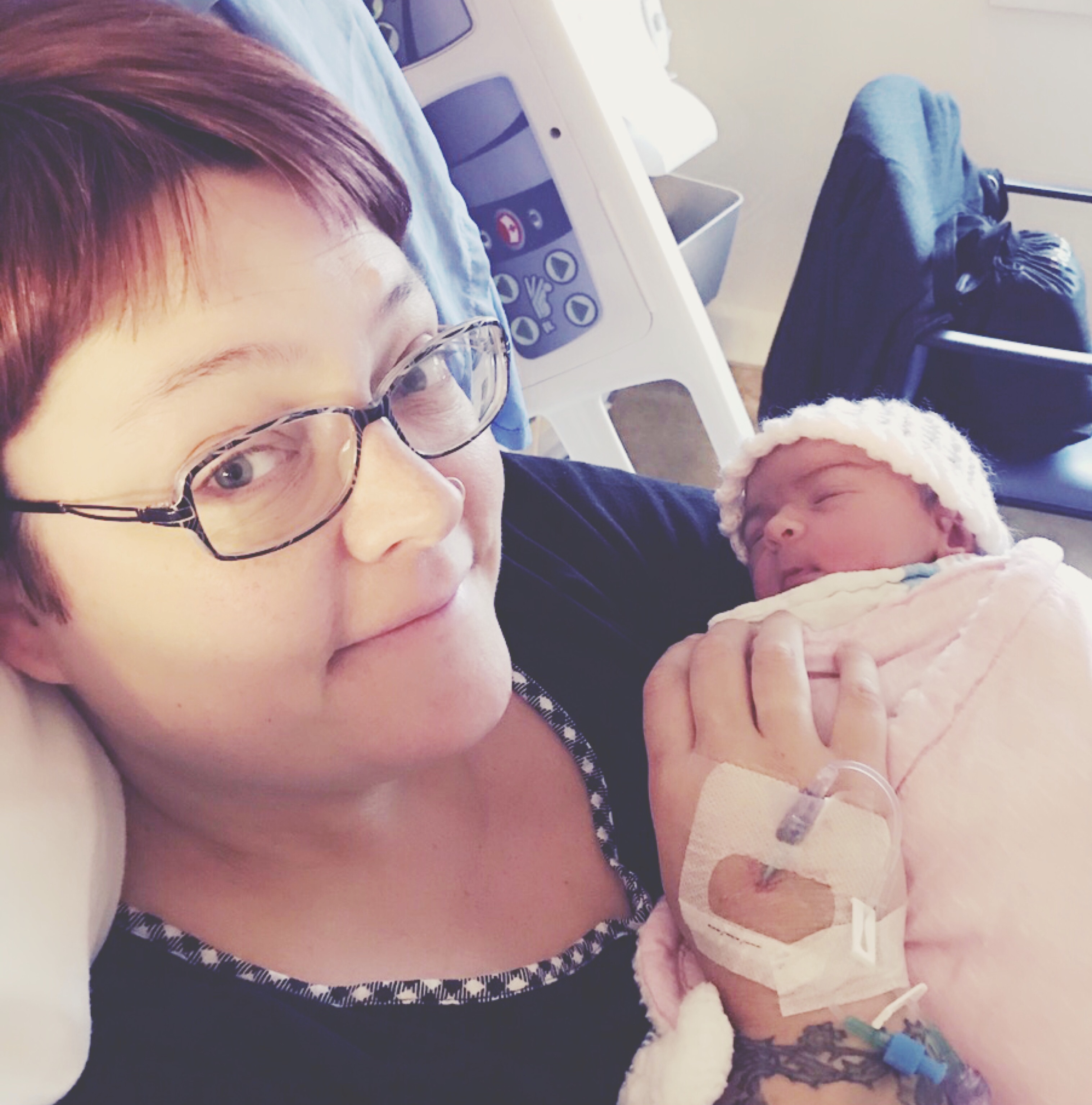
Why do women decide to become surrogates? And how does the process unfold? Canadian Fertility Consulting continues this series of interviews with our surrogates to share stories from women just like you. Women who decided to take a leap of faith, change someone’s life forever, and make their dreams come true. This is Kim’s story.
Why did you become a surrogate?
Originally, I was planning to carry a baby for my cousin. We were always really close growing up and when she got older, she needed excessive abdominal surgery. This ended up damaging her reproductive system, so I always told her I would be her surrogate. In the end, she decided she didn’t want to have kids of her own and was happy being the “cool aunt”. By this point, I had spent the last ten years of my life expecting to carry a child for someone else. Since I was mentally prepared to do this, and since I was also very active in the LGBTQ community, I combined these two concepts by deciding to carry for a queer couple.
Why did you decide to carry exclusively for the LGBTQ community?
I’m a very active member of the LGBTQ community and I’m bisexual. One of the first things I noticed when I started looking into surrogacy outside of carrying for a family member was that there were a lot of women out there who said they would only carry for “traditional” couples. I remember thinking to myself: “Does this mean what I think it means?”, and it did. By traditional they meant only heterosexual couples. So, I decided to go the opposite route and I only carry for queer couples in an effort to balance it out a little.
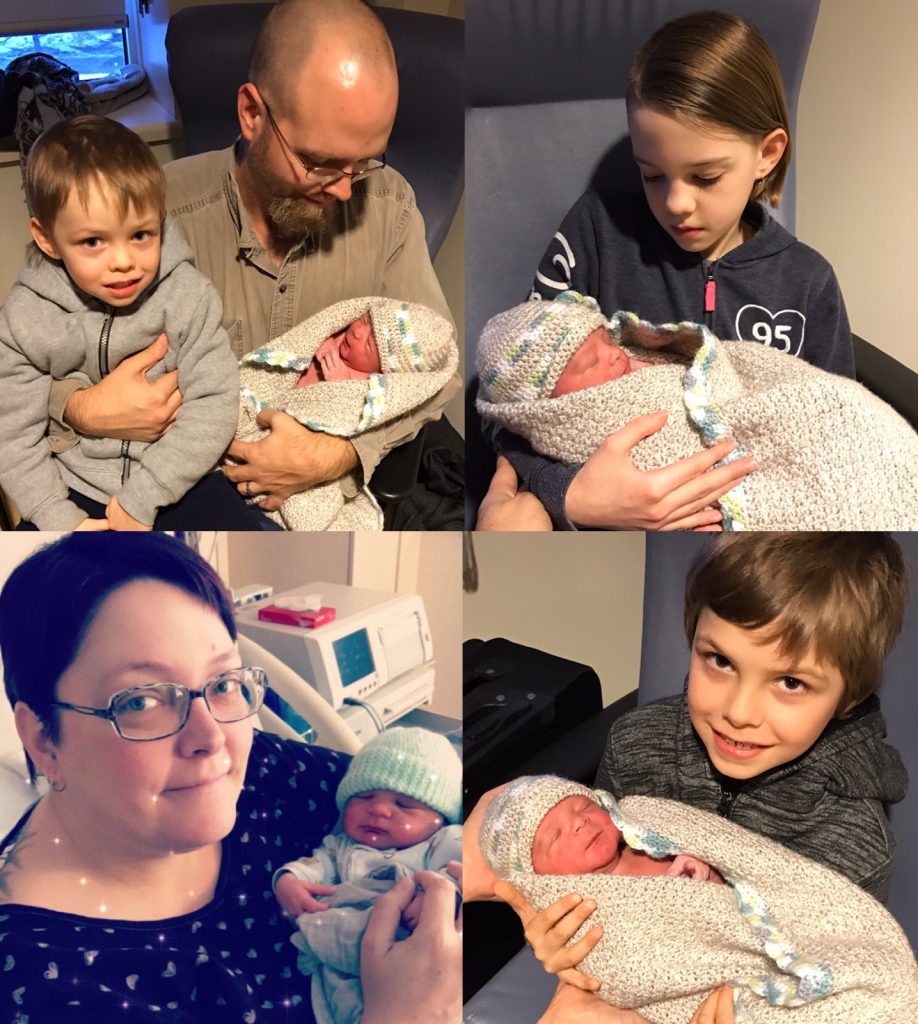
Who supported you most in your decision to be a surrogate?
Definitely my husband, and also my eldest daughter. She is twenty-three now, but she would have been about 19 or 20 at the time of my first journey. She loved the idea and was very excited about it. My husband was initially a bit weirded out about the whole thing and didn’t understand the notion of carrying babies for other people, but once I explained it to him and he understood, he was entirely onboard.
How did you explain surrogacy to your children?
My kids are familiar with LGBTQ couples because I’ve always been active in the community. Since I was carrying for gay couples, it was quite simple to explain: it’s two men and they’re missing a uterus so I’m loaning them mine. My two youngest children were also at an age where they were starting to become more interested in their own bodies. I was able to pick up a few books geared to teaching children about their biology. Through this I was able to show them the difference between men and women’s bodies, and tie this in with my decision to be a surrogate.

Why did you pick your intended parents?
For my first journey with Canadian Fertility Consultants, I told the staff exactly what I was looking for in an Intended Couple. They found a couple they thought was perfect for me, and once I read their profile, I knew they were the ones. They were absolutely amazing, and we planned on doing a second journey, but they needed a bit more time. Instead of just waiting, CFC found me a wonderful couple in Montreal who were also in the LGBTQ community. It was just recently my surro-babe’s second birthday, and we are still in touch and exchanging messages and photos. For my third surrogacy, I completed a sibling journey for my first set of Intended Parents.
What was your relationship with them like?
My first set of Intended Parents and I texted each other every day, all day long. Since I’ve had five children of my own, we were still is constant contact as I was able to offer them advice and suggestions about how to care for their new baby. We’re still in frequent communication to this day. With my second set of intended parents, we talked often but it wasn’t with the same frequency. I think this was because they already had a child and didn’t need as much input from me. Not only had they already gone through one pregnancy, but one of the intended fathers works in the healthcare industry, so they were both calmer about the entire situation. The relationship wasn’t nearly as close, but it was still very friendly.

Did you have expectations about your relationship with them? Did reality turn out similarly?
For both sets of intended parents, I hoped we would keep in touch and maintain contact with one another afterwards. At the same time, I tried to set myself up with the expectation that it might not turn out how I hoped. Surrogacy is a very intimate experience, but once the baby is born some of that intimacy goes away and you can’t predict how the relationship will turn out. It’s like any other relationship, they all have the ability to drift apart. I was worried about us becoming best friends and then losing them once the baby was born, so I already mentally prepared myself before we met in case this were to happen. In my case, I’m incredibly lucky as both sets of intended parents wanted to stay in touch.
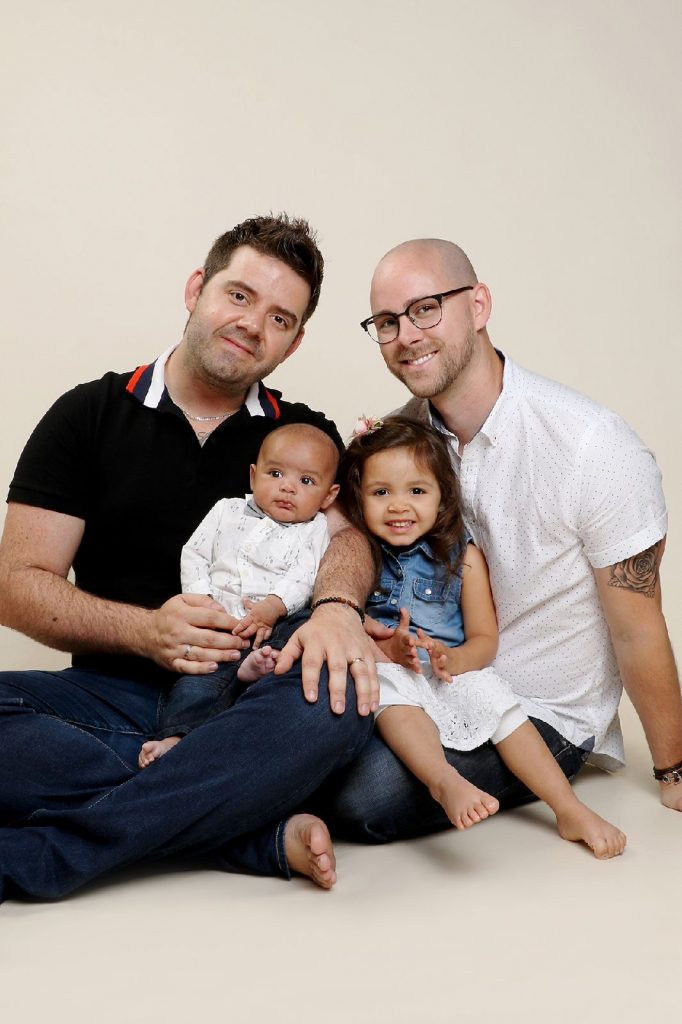
What was the medical process like in terms of taking medications and having procedures?
I’ve done three journeys, so they have all been slightly different. My first journey was medicated because I was doing a fresh transfer, so I was taking daily Estrace and Progesterone shots. For a fresh transfer, the embryo has never been frozen so once it’s been retrieved, it grows for five days, and then it goes directly into the uterus. For this process to work, a surrogate must be medicated because it all comes down to timing. My second and third journeys were frozen transfers, so I was able to do natural cycles. This means that I didn’t take the estrogen, and I only had to take minimal progesterone as a suppository. There were more trips to the clinic to have blood work done and to watch my hormone levels, but there was less medication and less hormones, which I prefer.
In terms of procedures, when I went in for my first transfers the doctor discovered that I had a uterine polyp, which is basically a small growth on the uterus and is actually quite common. In most cases, it’s not a cause for concern, but in terms of IVF the doctors want the uterine environment to be as ideal as possible to increase the chance of successful implantation. Due to this need for a near perfect uterus, they had me go in for a surgery to remove the polyp. They put me under “twilight sedation”, so I was still somewhat awake, but I don’t remember anything. Not only does having the polyp removed make the uterine environment more hospitable, but it also increases blood flow to the area which thickens the wall of the uterus and increases the chance of implantation.
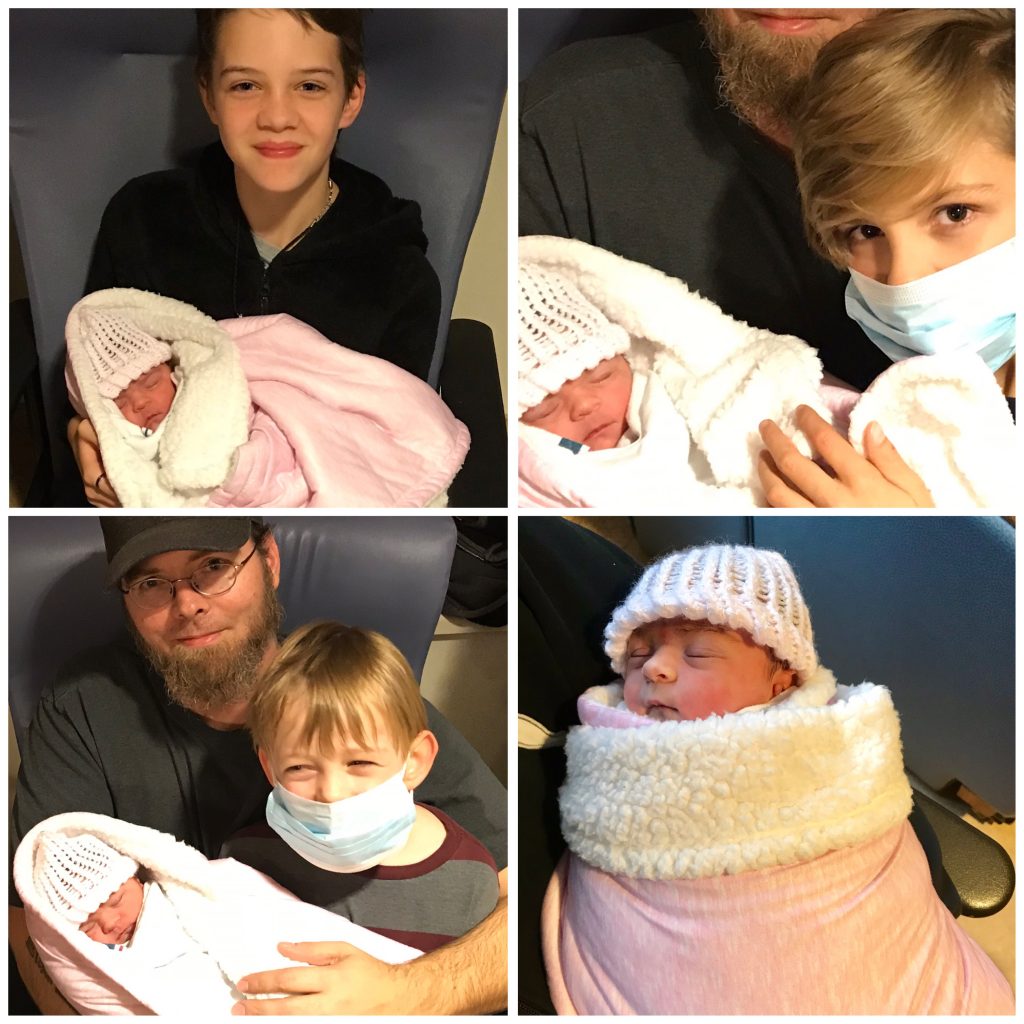
What was your surrogate pregnancy like?
Each pregnancy I’ve had has been unique: I’ve had 8 pregnancies total, 5 of my own and 3 surrogacies. For my surrogacy pregnancies, they were all very different from one another. For example, I’ve never had any issues with swelling before, but during my first surrogacy pregnancy my feet were so swollen that I had to tell people at work I was pregnant because there was no hiding them! They were puffing over my shoes and I had no choice but to explain to people what was going on. I think a part of it was the medications and another was genetics, as one of my intended grandmothers also dealt with swelling.
The birth was also a bit of the challenge as the baby got stuck during delivery. As they were reaching for the forceps my body must have intuitively reacted because I was able to push the baby out. Unfortunately, I think this was a bit traumatic for my intended parents, especially as they were behind a curtain for this and weren’t able to see what was going on. Before this I had experienced relatively easy births, so I felt really bad for them that it had turned out this way.
For my second surrogacy journey, the pregnancy was relatively uneventful, and the delivery was very calm and smooth. When it came to my third birth, I planned it very carefully since my first birth for this couple was so complicated. I wanted to give my boys at least one uncomplicated birth, but that just didn’t end up happening. When I was induced there was meconium in the water, and the doctors didn’t want the baby to breathe that in. Her heart rate was also dropping too low, so I had to undergo an emergency caesarian section. That was my very first C-section after 8 pregnancies! Afterwards, the baby had to go on c-pap to clear out her lungs and establish her breathing. She’s doing great now, but it was a bit scary during the delivery.
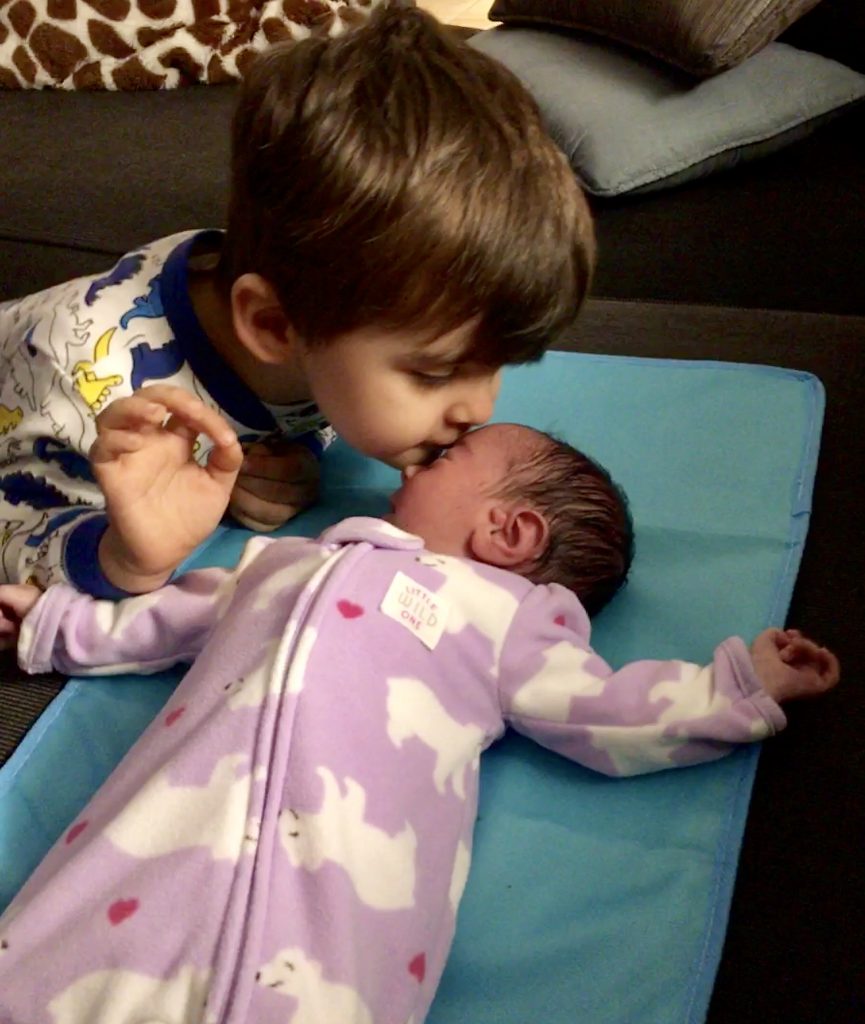
How did your kids and family feel about your surrogacy?
They were all very impressed. My 8-year-old is a bit of a baby fanatic, so he loves the idea of me carrying babies. He wishes that I would take them home but once he’s been able to go to the hospital and hold the babies, he’s fine with them going home with their daddies. My kids all get really excited whenever I’m sent photos and they enjoy seeing them grow up.
What was the best part of your surrogacy journey?
For my first journey we actually had a birth photographer, but because the baby got stuck, the room was a bit more chaotic then I had anticipated. I didn’t get to see what happened after he was born as he was taken over to the warmer while they were still working on me. But the next day, the birth photographer posted some images onto the internet and I started to receive a flood of messages. I had forgotten she was even there, that’s how good she was as being an inconspicuous observer. Everyone was so excited about the pictures, so when I finally got onto Facebook to see them, I was blown away. Seeing the photo of the dads and the expressions on their faces when they first saw their baby is forever burned into my memory. I didn’t get to see them in that moment, but for me, that photo perfectly captured the entire journey.

What would you say to someone considering surrogacy?
Make sure you do your research, know what you’re getting into, and make sure your expectations are in line with reality and not overly idealistic. No matter what happens, no matter what kind of relationship you end up forming with your intended parents, you’ve made them parents. At the end of it all, you’ve made them a family, and that is enough.
Would you consider being a surrogate again? Why or why not?
At this moment, I’m no longer able to be a surrogate as I need a hysterectomy. My first set of intended parents and I use to have an ongoing joke that I had the “golden uterus”. After eight pregnancies and three surrogacies the golden uterus is happily retiring.
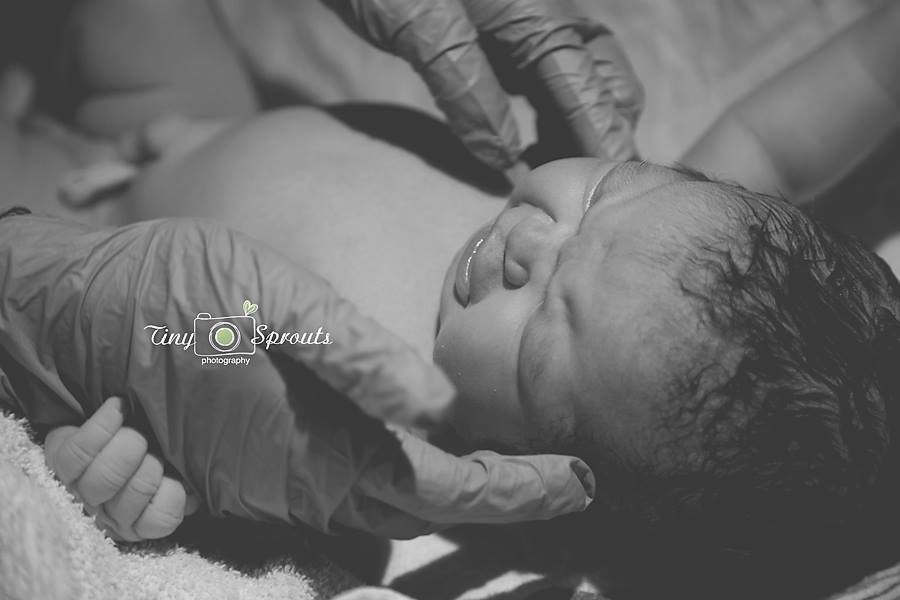
Thank you, Kim, for taking the time to share your amazing surrogacy story with Canadian Fertility Consulting.
Read the Latest
About Us
Canadian Fertility Consulting is Canada’s premier surrogacy agency. Each year, we guide hundreds of parents create or expand their family through surrogacy and egg donation.

